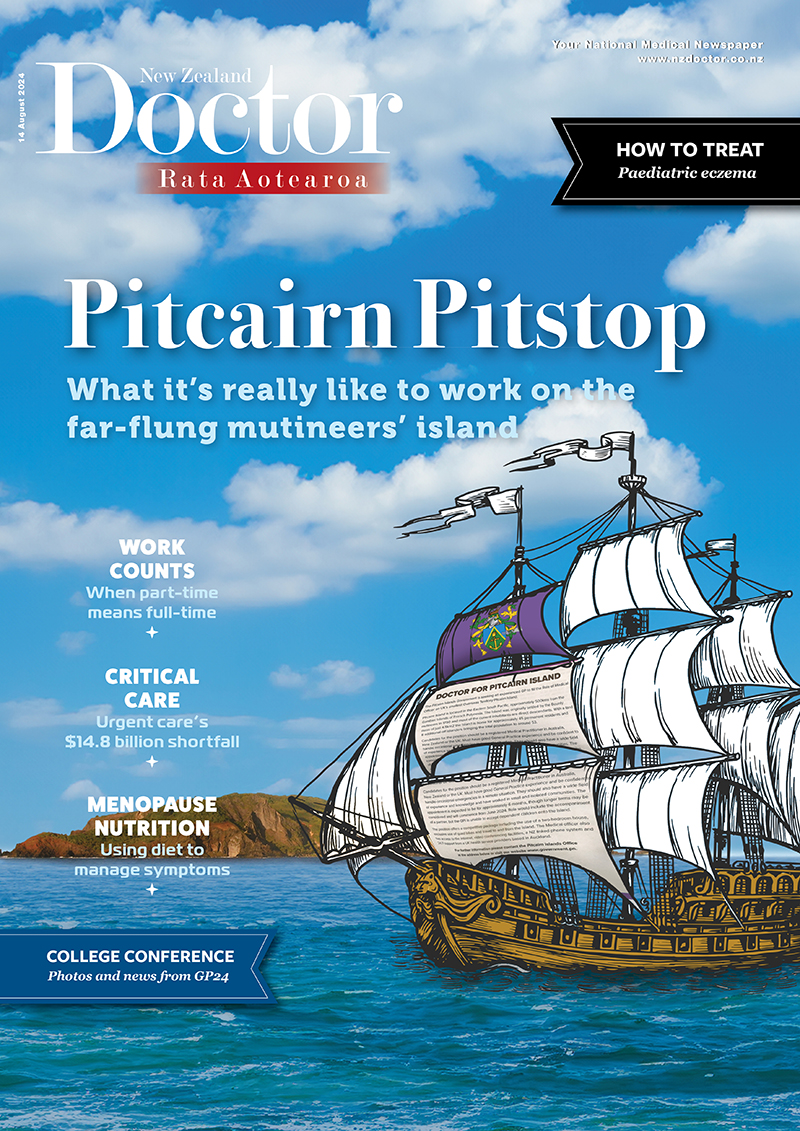Specialist GP Nikki Vadgama provides some tips to make your next paediatric eczema consult easier. She includes a review of new guidelines, resources, websites and medications for paediatric eczema management
Interprofessional education for health professionals
Interprofessional education for health professionals
An ageing population, growing numbers of people with chronic conditions, and an ageing, pressured health workforce. These are some of the hurdles facing health systems in New Zealand, and around the world. Advances in technology are providing some solutions, but those training and supporting health professionals are also looking at an innovative new approach to improve staff well-being and patients’ experience of healthcare.
The new approach is called Interprofessional Education (IPE). It brings different health professions together to learn about each other and how to work and communicate more effectively in their patients’ interests. The approach is being put into practice internationally, particularly in training the next generation of health professionals. The idea is that if students train with each other and establish productive and effective relationships, they function better as a team when they enter the workplace.
International research on the benefits of IPE being implemented into practice have found it reduces errors and improves patient satisfaction; improves patient outcomes, safety and satisfaction; and improves staff wellbeing.
Te Papa Hauora/Christchurch Health Precinct recently hosted a series of workshops on IPE and how to put it into practice by a world leader in the area. A wide range of health professionals from around New Zealand attended the workshops by Dr Margo Brewer from Australia’s Curtin University.
There are five key partners in Te Papa Hauora/ Christchurch Health Precinct. They are the Canterbury DHB, Universities of Otago and Canterbury, Ara Institute of Canterbury and Ngai Tahu’s earthquake recovery arm, Matapopore. One of our goals is to provide opportunities for health professionals and researchers to work together to improve outcomes for the health system and the community. To do this, we need to develop innovative models of professional learning and education to attract students from across New Zealand to our region to help build our future workforce.
Canterbury has a history of integration and interprofessional collaboration. Many of the Health Precinct partners are already working together implementing IPE initiatives; we wanted to support and grow their expertise in an area showing promise in benefiting both clinicians and their patients.
One example of IPE in practice in Canterbury is an initiative led by the University of Otago, Christchurch, and involving students from the University of Canterbury and Canterbury DHB staff. It brings final year medical students together with new nursing graduates, students of social work,
speech and language therapy, physiotherapy, occupational therapy, dietetics and pharmacy students to develop a care plan for a 70-year-old fictional patient named Mary who needs to be discharged from hospital after suffering a stroke.
With the ageing population, stroke recovery is an increasingly common condition – and one where the patient is involved with a wide range of health professionals in tertiary and primary care. Discharge is a time in the patient journey that requires a clear plan and communication with the patient, their family and other health professionals.
Another example of IPE in practice in Canterbury are the Dedicated Education Units (DEUs) for nursing students established by the Canterbury health system in partnership with Ara Institute of Canterbury. DEUs provide a supportive learning environment where nurses learn from experienced health professionals. There are now more than 50 DEUs across the Canterbury health system and nursing students from Universities of Canterbury and Otago now take part. Allied health professionals have been involved and there are plans to involve other professions.
Interprofessional collaboration and education will grow exponentially between Health Precinct partners with the opening of the Manawa building. This facility in the heart of the Health Precinct houses nursing, midwifery and medical imaging students from Ara Institute of Canterbury, Health Science post-graduate students and researchers from the University of Canterbury, and Canterbury DHB researchers, educators and all health staff including those with a focus on expanding and developing the health workforce. It has a state-of-the-art Simulation Centre where students and clinicians can learn together on clinical scenarios before they encounter them in clinical practice settings. Manawa is sited across the road from Christchurch Hospital where many of our health professionals train.
As IPE initiatives increase in Canterbury, patients and whanau will definitely benefit. When we work together, we perform better. We understand each other better. We show more respect for each other, and ultimately, we improve the delivery of care for our patients.
Professor Ian Town is Chair of Te Papa Hauora/Christchurch Health Precinct Advisory Council




